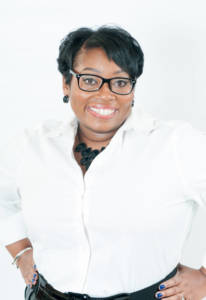 What does it truly mean to be healthy? My years as a nurse has taught me that being healthy is more than being a certain weight. Health should be looked at from a comprehensive approach, one that includes physical health and mental health. Without good mental health, you cannot be healthy.
What does it truly mean to be healthy? My years as a nurse has taught me that being healthy is more than being a certain weight. Health should be looked at from a comprehensive approach, one that includes physical health and mental health. Without good mental health, you cannot be healthy.
According to the National Alliance of Mental Health 43.8 million adults experience mental illness in a given year and African American are 20% more likely to experience mental health problems than the general public. Therefore, we can no longer be silent about this epidemic.
It does not make you weak or insignificant if you need to seek help. I had an opportunity to interview Mrs. Felica Houston who is a Licensed Clinical Professional Counselor in Illinois. Felicia has more than 20 years of experience in the mental health field, earning a BA in Psychology and an MA in Human Development Counseling from Bradley University in Peoria Illinois. She is currently the Community Development Liaison for UChicago Medicine at Ingalls Hospital.
BDO: What are some myths about Mental Health in the black community that need to be addressed?
FH: There are many myths in the black community that need to be addressed.
- Black people don’t need help
- I don’t need help, I got Jesus. If I get help, then Idon’t trust God
- Other People are not qualified to deal with US
- We are a STRONG people and we don’t need any HELP
- ONLY CRAZY people get HELP
- People outside the black community CAN” T help the black community
BDO: What are some signs that would alert people it’s time to seek a mental health professional?
FH: Here are few signs that should alarm people to seek medical attention or talk to a mental health profession.
- Excessive fears or worries
- Withdrawal from friends/family/activities/Isolation (Loner)
- Problems sleeping/Increase in sleeping
- Detachment from reality (delusions) or hallucinations
- Inability to cope with daily problems or stress
- Alcohol or drug abuse
- Increase or decrease in appetite
- Sex drive changes
- Excessive anger, increased irritability, hostility or violence
- Suicidal thinking, suicidal plan
- Hearing voices or seeing things that others don’t see or hear
- Constant thoughts about death
- Inability to function
- Mood swings
- Impulsive behavior (Travel, Spending money, or sexual relationships)
BDO: What are some steps people can take when they have a loved one that needs mental health care but the loved one is in denial?
FH: Here are a few strategies to help people get their loved ones helped.
Stay calm. It’s easy to imagine the worst-case scenario, but signs of mental illness often overlap with other problems.
Consider whether there are other circumstances that might be affecting the person’s mood or behavior. Did the person recently experience a shock, such as the death of a loved one? Have they recently lost a job or started a new school?
Start by talking to him or her. Express your concerns without placing blame. You might say, “I've noticed that you seem more stressed than usual,” or “I've noticed you don’t seem like yourself lately.” Then back up those statements with facts, pointing out changes in hygiene or daily activities, for example.
Encourage your loved one to talk to a trusted healthcare provider. If he or she is hesitant to see a mental health professional such as a psychologist, suggest a visit to a general physician.
Offer to accompany them to the appointment. If your family member doesn't take you up on your offer, consider alerting his or her physician’s office with your concerns. Though the physician may not be able to share information with you due to privacy laws, it will give the doctor a head’s up to be on the lookout for signs of mental health problems.
If you feel your loved one is in danger of harming himself or herself or harming someone else, that’s an emergency. Don't hesitate to call 911. If possible, ask for an officer trained in crisis intervention — many communities have officers on staff who are trained to diffuse a mental health crisis in the best possible way.
BDO: What resources areavailable for people who have been diagnosed with a mental illness?
FH: Here are some resource that can offer care and support patients and families.
Ingalls Behavioral Health Services is a resource in the Chicagoland area. Ingalls Assessment and Referral Department can be reached 24-7 at 708-915-6411.
African American Private Practitioners in Behavioral Health http://aappbh.org/
National Alliance on Mental Illness nami.org
If people are in a crisis, call 911 or go to the nearest ER.
If people have private insurance, they can call the 1-800 number on the back or front of the card. Some cards have a number listed for Behavioral Health Services.
People can check with their primary care physician for referrals. Of course, blackdoctor.org is a phenomenal resource.
Seizetheawkward.org is another great resource
National Crisis Hotline Text CONNECT to 741741
National Suicide Prevention Lifeline 1-800-273-8255
BDO: How can people keep up with you and the work that you do in the community?
FH: I can be reached at 708-915-6873 or fhouston@ingalls.org and they can connect with me on FB.
Felicia Houston, MA, L.C.P.C., C.W.A.

Priscilla Q. Williams, RN: Author, Speaker, Certified Life Coach, Global Nurse Educator www.priscillaqwilliams.com









